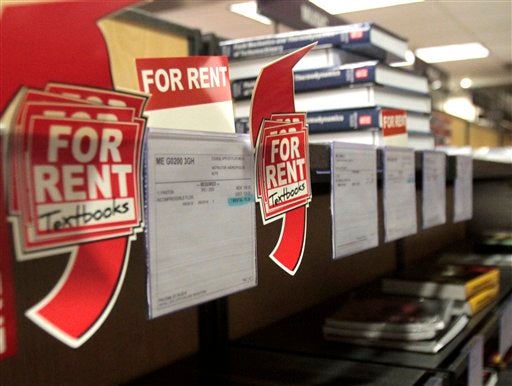Letter: Keep college textbooks affordable
Published 5:58 pm Wednesday, October 3, 2018

- Renting college textbooks was once heralded as a way to save money. Now, buying access codes to the texts' additional materials has become expensive. AP photo
Access codes are crippling today’s undergraduates. In the United States, 5.3 million undergraduates who are receiving financial aid are paying about $3 billion a year on textbooks and access codes. Access codes are more common than ever before as publishers aim to increase their profit margins. In a study that considered 10 universities, the average price for an access code is $100. Access codes often cannot be resold because they expire at the end of a semester.
Luckily, the government is taking action. Recently, Congress set aside $5 million to renew the Open Textbook Pilot program for FY19, which gives grants to colleges and universities to promote adoption of free and open textbooks by professors. The program could save students up to $50 million.
UNC professors and library faculty must work coherently and take advantage of the renewed grant system in order to combat the college debt problem in our country.
While UNC’s library claims to support OER (open educational resources) usage, UNC-Chapel Hill is one of the few universities in the UNC system that lacks an active OER program. ECU, NCSU, UNC-G, and UNC-C all have OER programs that save students thousands of dollars per year. Clearly, UNC-Chapel Hill is falling behind in supporting the adoption of affordable course materials.
NCPIRG is meeting with professors and educating them about the benefits of open educational resources. So far, 144 professors have signed NCPIRG’s textbook pledge to adopt affordable course materials.
— Emily Kindler
Chapel Hill

